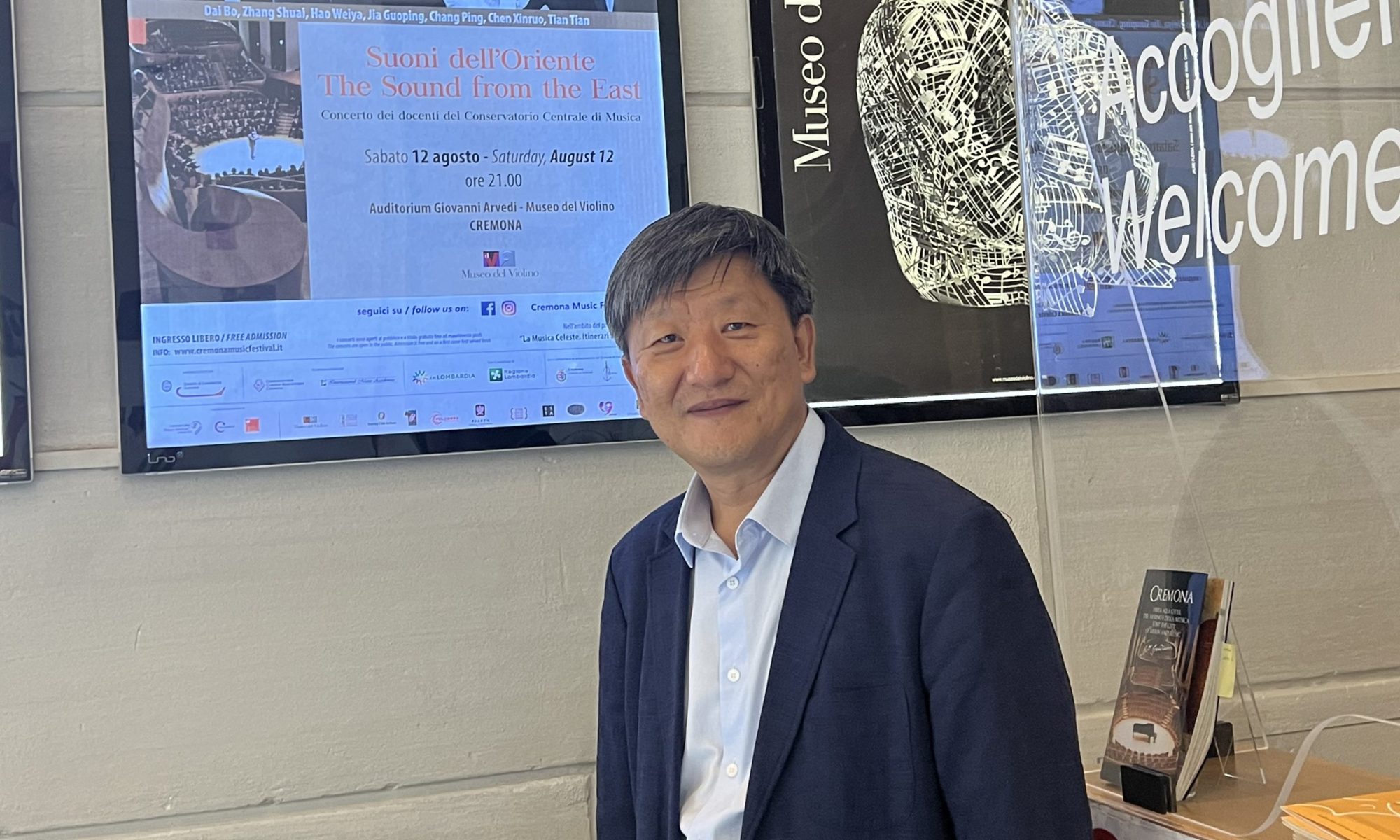“The Wind Sound in the Sky” (2002) – for sheng, cello and percussion
“目击众神死亡的草原上野花一片/远在远方的风比远方更远/我的琴声呜咽/泪水全 无”
本曲充分展示了笙的和音技术以及多声部演奏技巧;大提琴声部在广泛使用现代演奏 技术的同时,其“男高音”音区的优美音色也表现得十分突出。中西方两种历史悠久的乐 器音色,在本曲中融合得恰到好处。
作曲家在创作的过程中,尝试将海子的诗歌《九月》中的语言意象与音乐表现、文字 结构与音乐结构进行紧密结合。笙声部作为本曲的灵魂,连绵不绝,忽近忽远,展示一种 辽阔寂寥的时空背景;大提琴声部似大自然中风声的独吟,看似平静的线条下蕴含激烈的 情感倾诉动力;打击乐的意境似广袤的草原,是流浪者的家园,为笙和大提琴作氛围的烘 托。在乐曲开始,剧烈的音响喷腾而出,在一番叙述后逐渐达到情绪的高潮,最后归于平 静与回响,似诗中的意境:众神远离人而去,人孤独面对苍穹, 思念拥有神的日子。
首演于 2005 年 6 月 24 日德国汉诺威“远东音乐节”。
笙:吴巍
大提琴:卡斯特恩•德宁
打击乐:安德里亚斯•波特格尔
(Wildflowers are blooming on the centuries-old prairie, furthest wind blows, my tweedle sounds dolorous)
This piece shows Sheng’s harmonic as well as the multi-part playing skills: the modern technique is widespread used while cello playing , and the beautiful melody within the pitch range as “tenor” also sounds very prominent. The sounds of the two instruments with long history was perfectly mingled.
The composer tried to combine the imagery of Haizi’s poetry ” Jiu Yue (September)”, poetry and music performance, text structure and musical
structure. As the soul of the music, Sheng shows the endless melody, near or far, which present a vast, solitary space-time background; Cello sounds like a solo of wind, it contains a lot of intense emotion under the calm lines; The performance of percussion is like a wide grassland, or home of wanderers, to build an atmosphere for sheng and cello.
In the beginning of this piece, intense sounds come out, gradually reach the emotional climax after some narrative telling, and end with a peaceful echoes, like the mood of poetry : Gods went away, human face the sky lonely, miss the God days.
Premiered in “Far Eastern Music Festival”, on June 24th, 2005, in Hanover, Germany, performed by the famous musician Wu Wei.
Sheng:Wu Wei
Cello:Karsten Dehning
Percussion: Andreas Boettger
